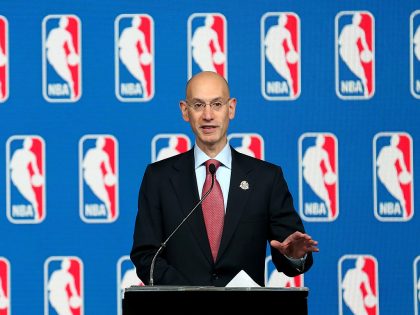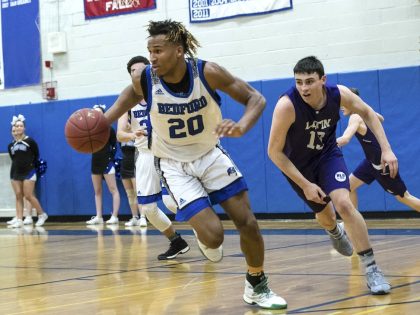
Adam Silver Is on a One-Man Mission to Ruin the NBA
Adam Silver became the NBA commissioner in 2014. Since then, he has wholeheartedly embraced sports gambling while making games harder for ordinary people to watch.
Jack Bedrosian is a writer and performer based in Los Angeles. He has an MA in global politics from Loyola University Chicago.

Adam Silver became the NBA commissioner in 2014. Since then, he has wholeheartedly embraced sports gambling while making games harder for ordinary people to watch.

Sports are one of the few spaces in American society genuinely guided by ideas of fairness and meritocracy. But AAU basketball, with its pay-to-play leagues and corporate sponsorships, is ruining this experience for millions of young people.

The Saudi-funded TKO Group, which also owns UFC and WWE, is starting its own boxing promotion. With the support of MAGA Republicans, it plans to upend the sport’s protections, scrap safeguards, and undermine regulatory institutions.

The WNBA is more popular than ever. On the back of this success, and with rival leagues threatening to outbid it by offering athletes higher pay, the WNBA’s union has decided to use its strong position to renegotiate a contract for better pay and benefits.

Saudi Arabia’s plan to start its own international basketball league is the latest sign of the game’s drift into a world in which money, held by increasingly anonymous elites, has distanced sport from fans and communities.

A fall in NBA viewership has led pundits to ask whether the problem is that the league is too woke or shoots too many three-pointers. There is little evidence that these factors are to blame, but that hasn’t stopped conservatives from stoking a culture war.

Influencers like Jake Paul have risen to prominence by fighting athletes who want an alternative to exploitative bodies like the UFC. His pro-Trumpism and call for a union to protect the rights of fighters represent the contradictions within combat sports.

The NBA’s one-and-done rule stops players from entering the league straight from high school. This pushes top players into the NCAA, which makes billions off them, and reduces the window in which athletes, whose careers are often cut short, can earn.

Professional fighters are rarely paid for participating in competitions, and the average income of athletes working with promoters like the UFC is only $45,000. Now Jiu Jitsu fighters are pushing back against low pay, giving the industry a wake-up call.